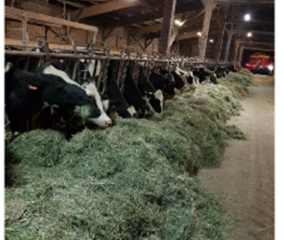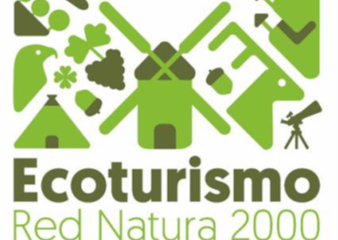Estonia
Introduction
The Smart Villages Programme is a national LEADER cooperation project that provides support and training activities to participating villages to develop a Smart Village strategy and implement innovative pilot activities in their area. As an added value of the cooperation project, a network of Estonian Smart Villages was created to increase the capacity and awareness of local communities about the development potential of the region. In addition, links was establish with the European Smart Villages Network Smart Rural 21 (www.smartrural21.eu).
The development programme of Smart Villages is implemented by 13 Estonian Local Action Groups. Twenty-four villages/regions from across Estonia participate in the development programme.
Two years long Smart Villages Programme included: Six training modules on different topics; A two-day study trip in Estonia and a five-day study trip abroad; Implementation of pilot activities; Mentoring support; Communication and information activities;
As a result of the project, 24 smart village strategies and pilot activities were prepared. LEADER LAGs gained experience on how to implement the concept of Smart Villages at the local level and planned follow-up activities into their Local Development Strategies. Through communication activities, the Smart Village approach was introduced to the general public, offering Estonian villages and communities inspiration for the smart development of their regions.
Presentation of the project
In 2020, the selection process of the villages of the “Smart Rural 21” project funded by the European Commission took place. A working group (members are representatives of the Ministry of Rural Affairs, Ministry of Social Affairs, Estonian Rural Network, Village movement “Kodukant”, Estonian Leader Union, Union of Estonian Towns and Municipalities) was formed to select Estonian villages. Many villages from Estonia wanted to participate in the project, but only the village of Virtsu was selected. This showed that local communities are interested in the topic of a smart village.
Therefore, Estonian LAG´s and mentioned working group came up with the idea of making a project to offer support activities to communities to create a smart village strategy. The project was inspired by the “Smart Rural 21” project adapted to the Estonian context. Estonia has a long tradition in the village movement, but the concept of a smart village sounds innovative and brings new energy.
At the beginning of 2021, a cooperation agreement was signed between 13 partners.
In the first half of 2021:
A selection of participating villages. 1-3 villages/regions from each LAG region.
Conducting the survey – to clarify what needs the villages have, what skills would need to be increased. The results of the survey provided input for the development of the training program.
A training program was developed. Six training modules on different topics: social innovation; digitalisation; greening solutions; networking and people involvement; urban-rural cooperation; cross-border service development; local marketing and attracting people to the region; smart transport and logistics solutions; self-sufficiency and business services.
Involvement of mentors: 13 specialists (representatives of local governments, leaders of cooperation networks related to rural areas, with a background of long-term village development…) who offer advice and help to villages in the process of shaping their strategy. Each village could choose the most suitable mentor for itself, according to the village’s characteristics, focuses, etc. Five working days of mentoring support for each village.
Beginning of communication activities – press releases, social media, website, etc.
June 2021, first meeting and training, introductory event.
August-September 2021, study trips for villages participating in the program to different places in Estonia to learn about inspiring projects and initiatives.
Second half of 2021:
Trainings on various topics: visualization and communication, SWOT analysis, engagement process, marketing, smart village tourism, mobility, community information platforms, international examples.
In the first half of 2022:
24 smart village strategies have been completed.
- Planning and implementation of pilot activities: each village carries out at least one pilot activity set out in the strategy, receiving a grant of € 5 000.
- A mini hackathon to help villages shape pilot activities.
- A media campaign was started: articles describing the strategy process and pilot activities in municipal newspapers and the national rural newspaper.
- June 2022, seminar for summarizing the strategy creation process- the current state of the activities and plans.
- October 2022, parallel study trips to Austria (Stanz) and Denmark (Torup).
- December 2022, seminar summarizing the project – experiences are shared by the participating villages/regions, lessons learned, results, plans.
- Second half of 2022 and beginning of 2023 implementation of pilot activities:
- Visitor map, virtual community platform, equipment for distance working, services supporting the livelihood of the residents, village cinema, new concept for local school and kindergarden, capacity building of local people, involvement of youth, energy security, circular economy solutions, interactive tools for sharing info, maps for visitors, smart bench.
- May 2023
- The final workshop of the project – conclusions/results
Making a video about project results/villages.
Emblematic character of the project
- Each participating village prepares a Smart Village strategy – 24 villages and 24 strategies;
- Each participating village implements pilot actions in the framework of its Smart Village strategy – 24 pilot actions;
- A national Smart Villages Network was established and linked with the international Smart Rural 21 network;
- Communication activities to introduce Smart Village strategies and results of pilot actions will be implemented to enhance public awareness and the know-how of Estonian villages, governmental institutions, etc.;
LEADER LAGs gained experience on how to implement the concept of Smart Villages at the local level and can, if necessary, plan follow-up activities into their Local Development Strategies (LDS) for the 2021-2027 programming period.
There were different target groups involved into the various types of activities during the implementation of the national Smart Villages Programme:
- Thirteen LEADER Local Action Groups across Estonia
- Twenty-four villages from the areas of participating LAGs
- Estonian national working group (steering group) on Smart Villages
- Ministry of Rural Affairs;
- Ministry of Social Affairs;
- Estonian Rural Network;
- Estonian LEADER Union;
- Estonian Village Movement;
- Association of Cities and Municipalities
- The project increases the local communities’ skills in strategic thinking, helps spark innovation and significantly increases the cooperation and cohesion of community members.
- For the first time in Estonia, 13 LEADER action groups (LAG) from different regions of Estonia and national institutions related to rural development have been involved in one project – this gives an opportunity for a wider spread of the understanding of the approach of smart villages.
- The project provided an opportunity to test the approach of smart villages across Estonia, to learn together with the communities, by increasing the capacity of both villages and LAG`s.
Pictures
Video (Estonian): https://leaderliit.eu/arukad-kulad/arukate-kulade-arenguprogrammi-video/
Photos: https://leaderliit.eu/wp-content/uploads/2023/05/348379597_1171556440178598_686870420092655061_n.jpg
https://leaderliit.eu/wp-content/uploads/2022/04/ideeteritaja_2022.jpeg
Tartumaa Arendusselts
LAG Tartu Rural Development Association
Estonia

